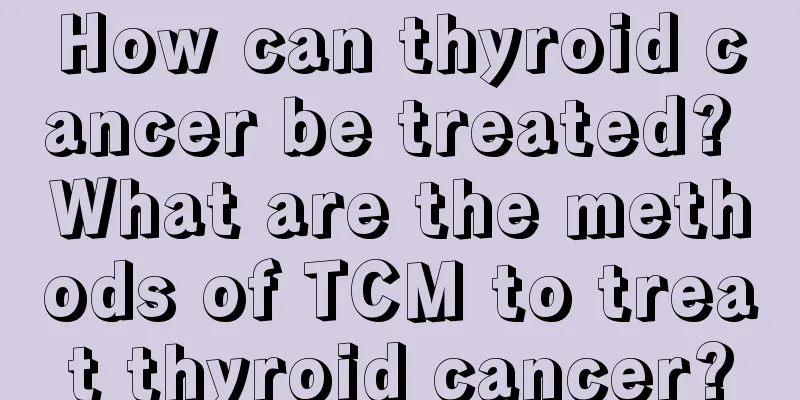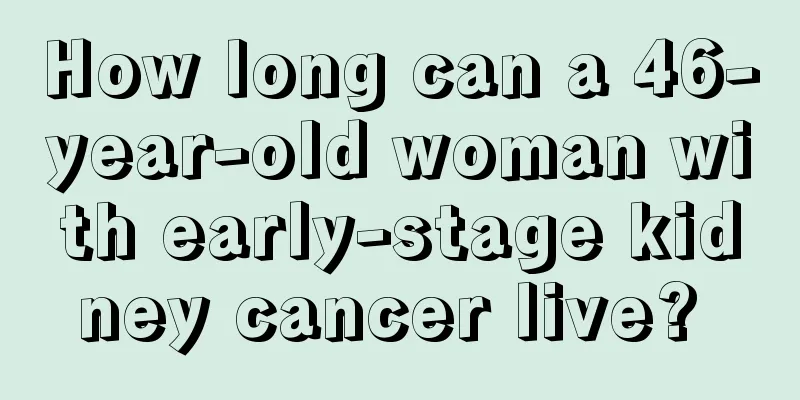What are the early symptoms of glioma

|
The horror of glioma is self-evident. It will have a great impact on our body and normal life. Usually, when we diagnose this disease, the condition is already very serious and difficult to treat. Therefore, it is very necessary to actively discover it in the early stage of the disease. What are the early symptoms of glioma? Here are five common early clinical symptoms of glioma. 1. Headache: About 30% of glioma patients experience headaches, and about 70% of them experience gradually worsening headaches. This type of headache is mostly non-specific and only intermittent, mostly located on the same side of the lesion, and manifests as dull pain rather than throbbing pain, which is sometimes difficult to distinguish from tension headaches. Large gliomas usually present as forehead pain, while small gliomas mostly present as occipital and neck pain. If the tumor is too large and produces high intracranial pressure, the headache will be significantly aggravated, sometimes waking up from sleep due to pain, and significantly aggravated by vigorous head movement, sometimes accompanied by nausea and vomiting. If the intracranial hypertension persists for too long, there will also be symptoms of decreased vision. 2. Mental changes: About 20% of glioma patients have changes in mental state as the first symptom, mainly manifested in changes in emotions, personality, cognitive function, memory, etc. 3. Focal neurological symptoms: Different locations of tumors can also cause corresponding neurological deficits, such as limb paralysis, sensory impairment, aphasia, unstable gait, alexia and agraphia. 4. Cranial nerve symptoms: Damage to different cranial nerves will produce corresponding neurological symptoms, such as decreased vision, diplopia, strabismus and facial paralysis. 5. Epileptic seizures: About 1/3 of glioma patients experience epileptic seizures, and the incidence increases to 50-70% during the course of the disease. Half of the epilepsy is localized, while the other half is systemic. Slow-growing low-grade gliomas are particularly prone to epileptic seizures, while the chance of glioblastoma causing epileptic seizures is very low. If you have obvious symptoms, you must go to the neurosurgery department of the hospital as soon as possible. In general, gliomas can manifest all the symptoms of neurological diseases, but not all symptoms will appear in a particular person, and these early symptoms will vary with the type of tumor, tissue characteristics, location and speed of growth. |
<<: What are the symptoms of glioma
>>: What are the specific symptoms of glioma patients
Recommend
Will eating garlic cause diarrhea
I believe many people have heard that eating more...
Which department should I go to for coccyx pain
There are many reasons for coccyx pain. Before tr...
Why do people bite their nails
Many people bite their nails when they are young,...
Will bone cancer be transmitted to my wife
Is bone cancer contagious? This is a question tha...
Is it okay for babies to always use diapers?
Diapers are very important daily necessities for ...
What are the causes of liver cancer? Summary of 4 causes of liver cancer
Some drinking water is often polluted by polychlo...
Is chemotherapy effective for advanced pancreatic cancer? There are certain indications
Is chemotherapy effective for pancreatic cancer i...
What is the survival rate of advanced colorectal cancer
The occurrence of colorectal cancer is caused by ...
Can chicken skin be tattooed?
We will find that some people often have some bum...
What is the anti-inflammatory effect of wisdom tooth flushing
I believe many people are familiar with oral dise...
What are the signs of heart failure
Heart failure is a very common disease that occur...
Introduction to first degree atrioventricular block on electrocardiogram
First-degree atrioventricular block on the electr...
How should high intraocular pressure be treated
Intraocular pressure refers to the pressure insid...
Is early acute nasopharyngeal carcinoma easy to treat?
Is early acute nasopharyngeal carcinoma easy to t...
What are the symptoms of babies with fibroids
What are the symptoms of babies with fibroids? Ma...









